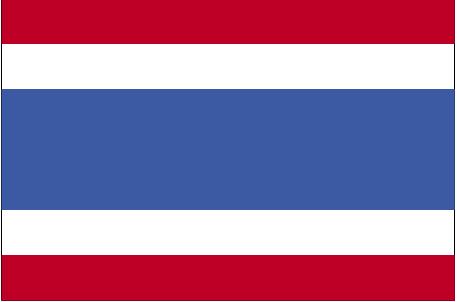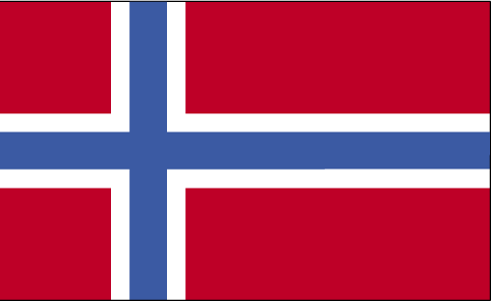Resolution #433
 |
The question of peacebuilding in post-conflict areas. |
| Committee: DISEC | |
| Main Submitter: Greece | |
| Submitted: 14/02/2025 21:13 |
| Status |
|---|
| Passed cosubmitter sheet validation |
| Approved by approval panel |
| Selected for debate by secretariat |
| Passed by committee (DISEC) |
Committee Voting
| For: | 36 |
| Against: | 10 |
| Abstentions: | 4 |
Options
Co-submitters
 | Russian Federation |
 | Albania |
 | Thailand |
 | Norway |
 | Iceland |
 | Ukraine |
 | Pakistan |
 | Belgium |
Resolution
FORUM: The Disarmament and International Security Committee (DISEC)
QUESTION OF: Peacebuilding in post-conflict areas
SUBMITTED BY: Greece
CO-SUBMITTERS: Russian Federation, Albania, Thailand, Norway, Iceland, Ukraine, Pakistan, Belgium
THE DISARMAMENT COMMISION,
Recognizing the importance of sustainable peacebuilding in post-conflict areas as a means of fostering long-term stability, human rights, and development for both local and global communities,
Affirming that peacebuilding is not only about ending conflict but also about creating sustainable institutions, fostering reconciliation, and addressing the root causes of conflict,
Acknowledging the role of inclusive peace processes that include all relevant stakeholders, such as the local communities, government, and civil society, in achieving lasting peace,
1. Requests the United Nations Security Council to form a new task force named the Reconstruction and Peacekeeping Taskforce (RPT), to be formed in conjunction with United Nations Peacekeeping (UNPKO), United Nations Development Program (UNDP), The United Nations Security Council (UNSC) and any other relevant body/sub-body to be tasked with determining the eligibility of member states to receive funding which will be distributed by the World Bank in the form of grants and low-interest loans, and further initiatives including but not limited to:
a. create an annual conference held in Geneva Switzerland with aims of discussing, sharing, and creating the best practices, for peacebuilding and rebuilding initiatives in post-conflict areas between all member nations
b. compile a report of the topics discussed and solutions reached to be looked back upon to measure progress, in order to foster dialogue and peace talks that come to an equally beneficial resolution for the involved parties
c. oversee the implementation of this resolution and call on the UNSC to impose sanctions or to deploy UN peacekeepers where necessary while monitoring the transportation of humanitarian aid and reporting any disruptions of humanitarian aid by militia or governments to the United Nations Security Council (UNSC) for further action to be taken
d. train peacekeeping personnel by partnering with UNESCO and other relevant organizations to develop training materials and certification programs focused on adhering to local and international law in the line of work, and collaboration with local organizations, groups, and members of the public by Integrating lessons on language and cultural learning;
2. Encourages the relevant bodies to assist in rebuilding and maintaining the peace of the post-conflict regions which would entail:
a. recruiting volunteers from various NGOs and any willing person to assist firstly in the clean up of post-conflict regions and to remove the required machinery dangers created by possible unexploded bombs or dangerous and unstable buildings and debris; in doing so, humanitarian workers will be ensured protection and wellness
b. rebuilding important routes of travel to bring the necessary equipment and aid to persons such as roads, railroads, and ports, prioritizing the major routes to maximize efficiency and utility, as well as rebuilding schools hospitals, and any other vital infrastructure to assist in the rehabilitation of displaced individuals
c. rebuilding and improving law enforcement facilities by providing law enforcement personnel with adequate equipment and training
d. ensuring judicial and legal support for groups who may be susceptible to violence in post-conflict areas, certifying adequate funding for judicial institutions to uphold the rule of law and protect citizens' rights;
3. Further Encourages member nations to work alongside the RPT, UNDP, UNESCO, and any other relevant body/sub-body to implement community-based initiatives focused on culture sharing to reduce the stigma around groups or other member nations that may have political tensions between them especially in the cases of past conflicts, examples of such initiatives include but are not limited to:
a. working with local religious institutions and cultural organizations to promote interfaith dialogue between religious leaders and acceptance of other religions and cultures by coordinating cultural events and cooperative projects between former adversaries to foster mutual understanding
b. developing regional and global educational programs to be implemented in willing member states in schools where an age to begin the program may be agreed upon by the member state and the RPT and will be carried out by trained and educational staff, in workplaces run in willing companies or organizations, and within the general public to take effect using media such as public speeches, biodegradable flyers, and social media with the aims of spreading information about post-conflict areas in need of assistance and aid, highlighting the dangers of prejudice and the importance of inclusion, while simultaneously promoting historical awareness to prevent future divisions
c. implementing a Reconciliation and Healing Program overseen and created by the RPT to provide measures to allow displaced individuals and individuals who participated in the conflict and have now put down arms to be rehabilitated into society and help rebuild communities;
4. Recognises that willing member nations should collaborate with the RPT to construct and improve upon legislative measures that ensure peace on a domestic and international level for both the immediate and long-term future through means including but not limited to:
a. ensuring that adequate punitive measures are in place for those who commit violent crimes that deteriorate peacebuilding initiatives
b. implementing and enforcing legislation that focuses on disarming members of the public and NGOs with adequate punitive measures in place for noncompliance to this legislation if implemented
c. crafting laws that criminalize actions that may incite violence, such as hate speech, discriminatory policies, and the promotion of ideologies.
5. Urges all Member States to prioritize and strengthen their efforts in providing humanitarian aid to populations displaced due to armed conflict through means including but not limited to:
a. encouraging the international community to cooperate with humanitarian organizations such as the United Nations High Commissioner for Refugees (UNHCR) and other non-governmental organizations (NGOs) in the efficient distribution of relief aid, such as:
i. provision of the basic needs of food, water, shelter, and adequate healthcare, by means of outreach workers comprised of employees, volunteers, and relevant field professionals under supervision of the Reconstruction and Peacekeeping Taskforce (RPT)
ii. providing psychosocial support and mental health services to individuals and families who have experienced trauma through conflict and displacement
iii. urging the creation of temporary learning spaces and the inclusion of displaced children and youth in host countries’ education systems
b. protecting the rights and dignity of displaced individuals overseen by the UNHCR, ensuring that they are not subject to discrimination based on race, religion, gender, or nationality by:
i. establishing mechanisms to prevent racial and religious profiling of refugees by local authorities
ii. training and educating officials to detect and respond to hate crimes against refugees
c. urging the UNHCR and the RPT to monitor return processes and verifying safety conditions on the ground, to ensure that refugees who return home can return safely and voluntarily;
6. Requests for the UNSC, in conjunction with relevant bodies such as the United Nations Office of Counter-Terrorism (UNOCT), to impose varying actions for Member States, extremist groups and all other key actors in post-conflict states, for these actions to be including but not limited to:
a. the implementation of arms embargoes, on nations, along key borders, with supervision from the UN peacekeeping outline in clause 1, for these embargoes to have the aim to stop the illegal trade of arms with the overarching goal of preventing the disruption of peace
b. for the UNSC to impose economic sanctions on Nations found to be harbouring extremist groups, with the aim to prevent extremist groups causing disruption in post-conflict zones:
i. for economic sanction and fines to be administered by the UNSC, upon being approved by the UN Sanctions Committee, against individuals and groups, recognising these actors key impacts on post-conflict zones
ii. for these sanctions to be lifted upon the cessation of violation by these nations,
c. for the Security Council to work in conjunction with the UNPKO to implement this clause.